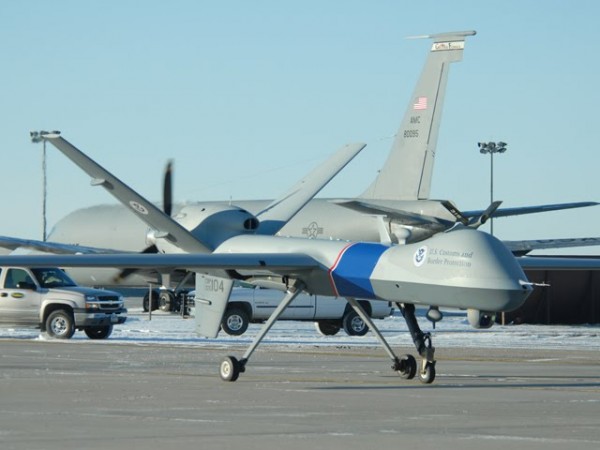Immigration Reform Won't Be Achieved without More Drone Surveillance

On Tuesday, the US Senate voted by a large margin -- 84-15 -- in favor of moving the immigration reform bill to the floor for further discussions. Among the key elements in the upcoming debates will be to reach a balance between the naturalization efforts favored by the Democrats and the security of the borders required by the Republicans.
The passage of the immigration reform bill to the Senate floor begins a negotiation process that will likely last for weeks and will offer lawmakers many opportunities to amend the bill before the final draft. One outcome, however, is already almost certain: comprehensive immigration reform will not be achieved without an increase in drone surveillance.
This year's attempt at reforming immigration laws is grand bargain between the Democrats and the Republicans. One side accepts the creation of a path to citizenship for illegal immigrants at the condition that the borders, especially the Southern border, be better protected.
The Senate bill calls for 90 percent apprehension rate for illegal immigrants coming through the Southern border. A report by the Government Accountability Office revealed that border patrols only apprehend 60 percent of all estimated illegal immigrants. One of the main methods for the securement of the border chosen by the drafters of the bill has been an increase use of drone surveillance.
Border drones have indeed become the Department of Homeland Security's (DHS) favored surveillance tool. Drones fly for a longer period and at a lower cost than most manned aircrafts and they are equipped with the best surveillance equipment.
The efficiency of border drones is, however, contested by civil liberties organizations. A report published by the Center for International Policy argues that the drones have played a role in only 0.003 percent of marijuana seizures and 0.001 percent of illegal immigrant arrests since 2005.
Despite the critics, the Senate bill requires the DHS to increase its number of border drones as necessary to provide 24/7 surveillance of the 1,950-miles long Southern border.
While this condition could appear to be a small price to pay for a better immigration system, the drafter's broad definition of the area under drone surveillance raises many concerns. The Southern border region is defined in the bill as “the area in the United States that is within 100 miles of the Southern border.”
A recent amendment provided one limitation to this rule for Southern California, and its millions of inhabitants. For this region, the drone surveillance area will be limited to a three miles strip north of the border. However, Arizona, New Mexico, and Texas will remain subject to this broad oversight.
Despite growing discontent among American citizens over not only the use of drones abroad, but on American soil, Congress is extremely likely to go forward with plans to increase drone surveillance. Many Republicans will not accept an immigration reform bill without more border security and considering the Obama administration's position on the use of drones, they are unlikely to be challenged on that issue.




